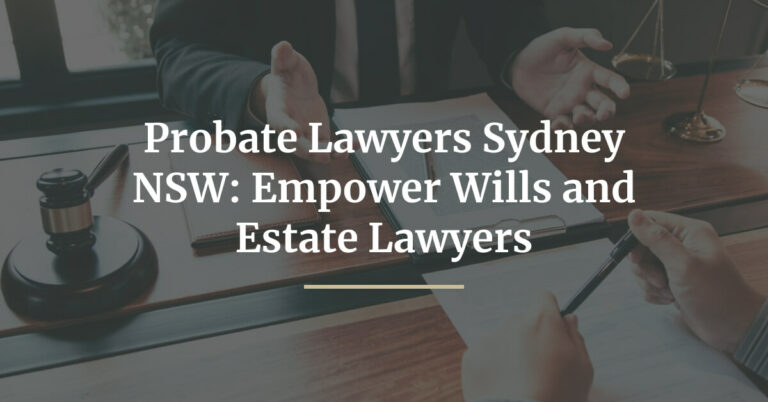
Probate Lawyers Sydney NSW: Empower Wills and Estate Lawyers
Probate & Administration in New South Wales In New South Wales, when a person dies, the executor named in the will is entitled to apply for probate and administer the estate. Where there is no executor willing and able to act as executor (i.e., if they have predeceased the testator) or where the deceased died
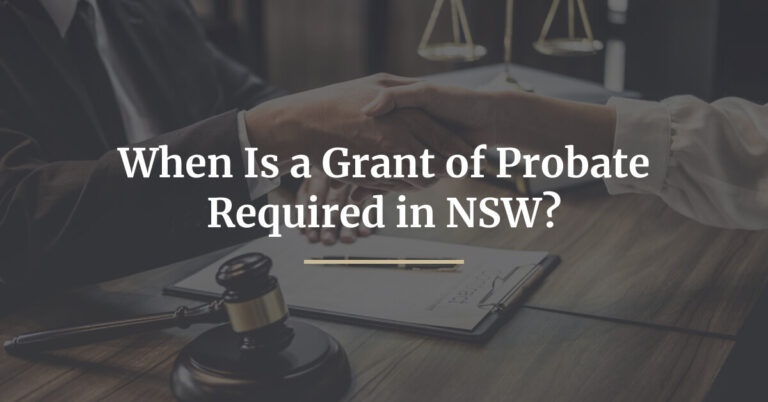
When Is a Grant of Probate Required in NSW?
When someone dies, the person named as executor in the deceased’s will has the right to apply to the Supreme Court of NSW for a grant of probate, which, if granted, will give that person the power to administer and distribute the deceased’s estate. If there is a will but none of the named executors
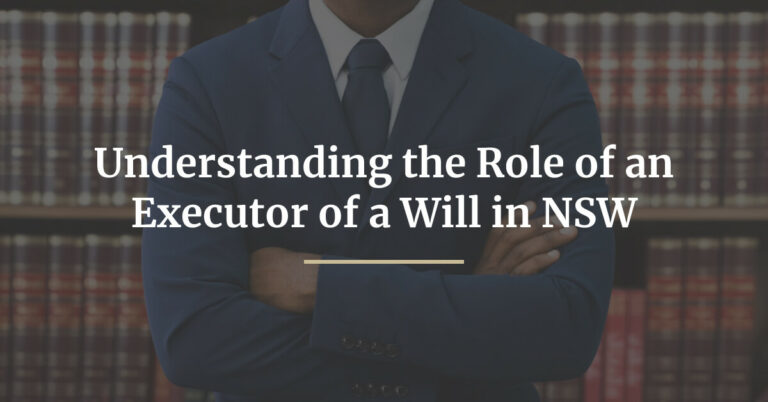
Understanding the Role of an Executor of a Will in NSW
What is an executor? The executor is a person who is named as executor in a will and who, upon the death of the will-maker, has the right to administer and distribute the deceased’s estate in accordance with the deceased’s will. While some activities can be attended to before probate, the person appointed as executor
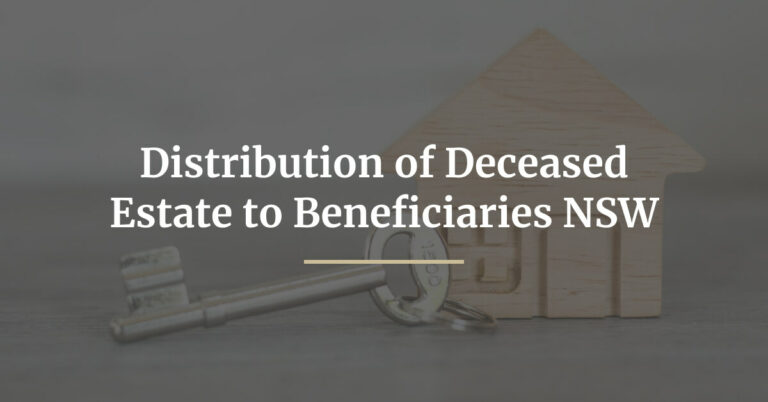
Distribution of Deceased Estate to Beneficiaries NSW
Understanding the Estate and its Beneficiaries The property, money, or other assets owned by a person at the date of their death will fall into the deceased’s estate. This includes assets held solely or as tenants in common with someone else, but does not include assets held as joint tenants with someone else, as those

Can I Leave a Child out of My Will?
What does it mean to disinherit a child? When drafting a will, circumstances may arise where you feel you want to disinherit one or more of your adult children from your will. This means the child or children you wish to leave out would not be entitled to any inheritance under the terms of your
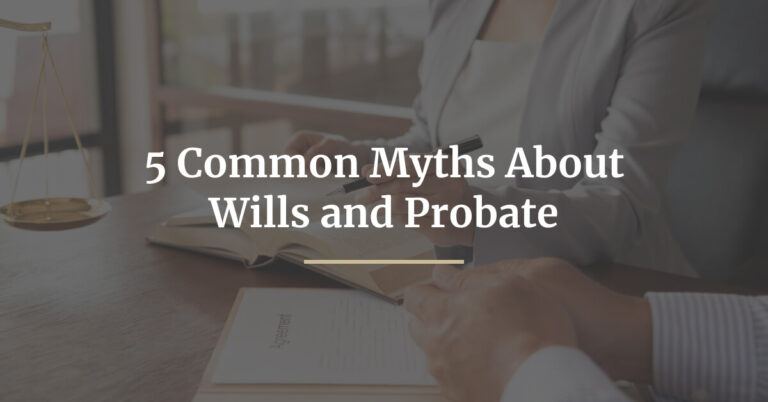
5 Common Myths About Wills and Probate
In the realm of estate planning and administration in New South Wales, wills and probate are often subjects of misconceptions and misinformation. This guide aims to dispel some of the most common myths surrounding these critical legal processes. Understanding the truths behind these myths and misconceptions is essential for anyone navigating estate planning, ensuring assets
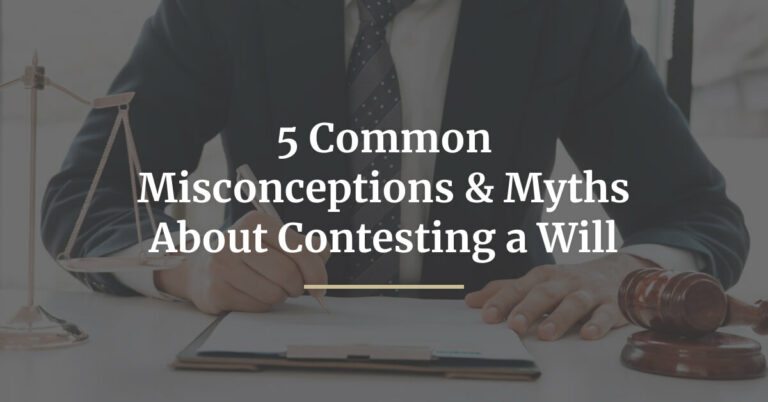
5 Common Misconceptions & Myths About Contesting a Will
The process of contesting a will is often misunderstood, with many myths and misconceptions about wills circulating in public discourse. This guide by Empower Wills & Estate Lawyers aims to address and clarify these misconceptions, particularly common in estate planning and family provision cases, and provide accurate insights into the legal practice of contesting wills.
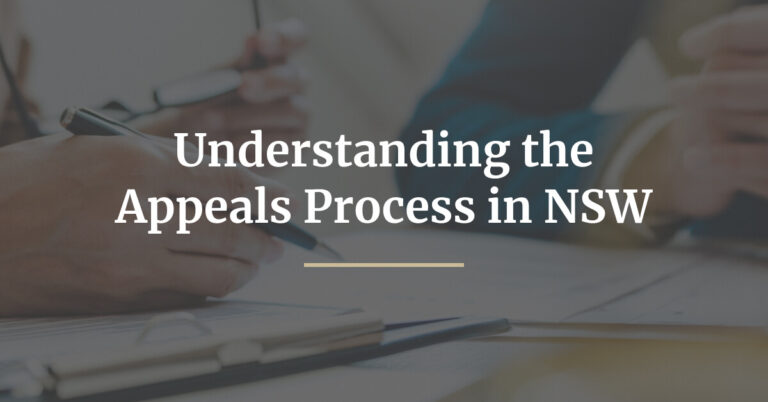
Understanding the Appeals Process in NSW
The appeals process in NSW provides a pathway for challenging court decisions, ensuring justice is served fairly. This guide by Empower Wills & Estate Lawyers explains the steps involved in appealing from Local Courts to higher courts in NSW. Understanding this process is crucial for anyone involved in court proceedings who may need to lodge
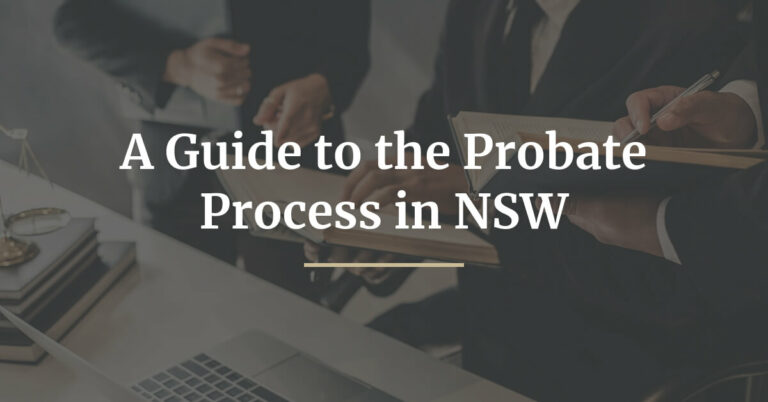
A Guide to the Probate Process in NSW
In New South Wales (NSW), navigating the probate process is a crucial step in managing the affairs of a deceased person. This guide aims to demystify the steps involved in obtaining a grant of probate in NSW, a legal process overseen by the Supreme Court of NSW. Whether you’re an executor or a beneficiary, understanding
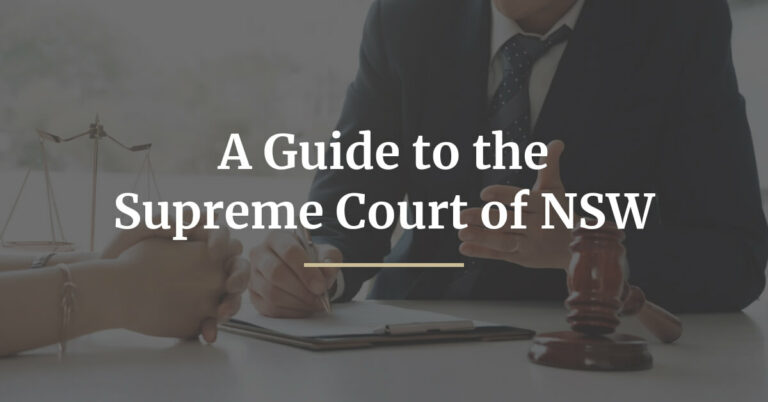
A Guide to the Supreme Court of NSW
Welcome to your comprehensive guide on the Supreme Court of New South Wales (NSW) by Empower Wills & Estate Lawyers. As the highest court in the state, the Supreme Court plays a crucial role in NSW’s legal landscape, handling a range of complex civil and criminal cases. This guide will provide essential information about the
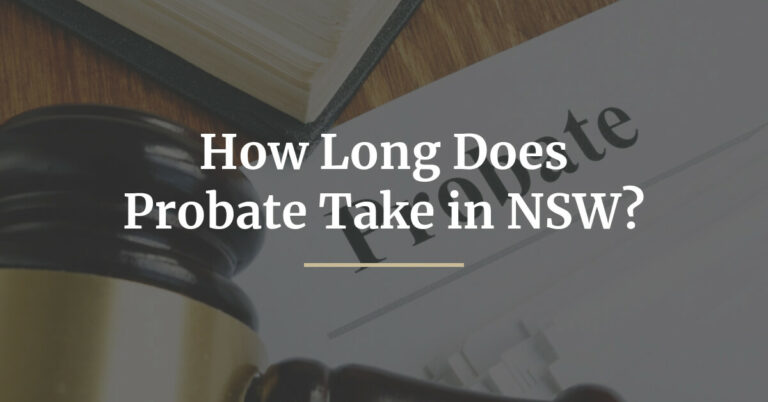
How Long Does Probate Take in NSW?
A Brief Overview of Probate in NSW In NSW, a named executor may apply to the Supreme Court for a grant of probate. If granted, the grant of probate will give the executor the legal authority to administer and distribute the deceased estate in accordance with the terms of the deceased’s will. Executors must apply
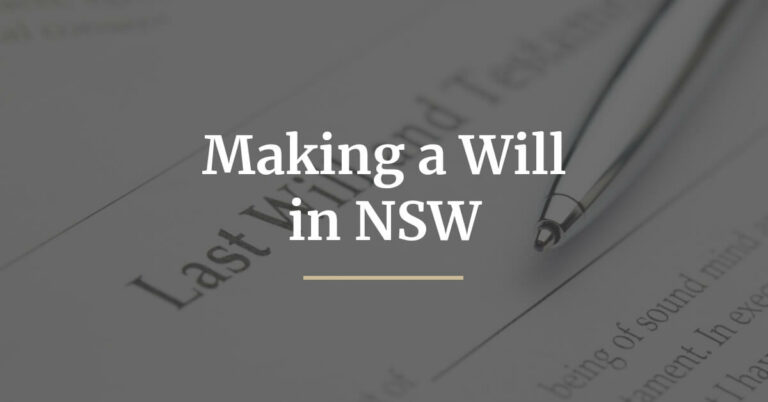
Making a Will in NSW
Legal Requirements for Making a Will in NSW Having a valid and up-to-date will is a way to best ensure your estate is distributed according to your wishes. In NSW, for a will to be valid: it needs to be in writing. be executed in accordance with the formal requirements, be made by a will-maker
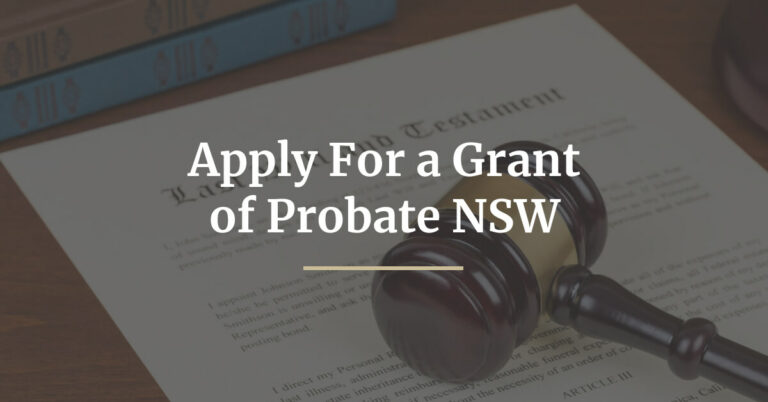
Apply For a Grant of Probate NSW
What is The Purpose of a Grant of Probate? A grant of probate in New South Wales is a court order issued by the Supreme Court which gives the person named as executor power to administer the estate and distribute the estate pursuant to the terms of the deceased’s will. A grant of probate is
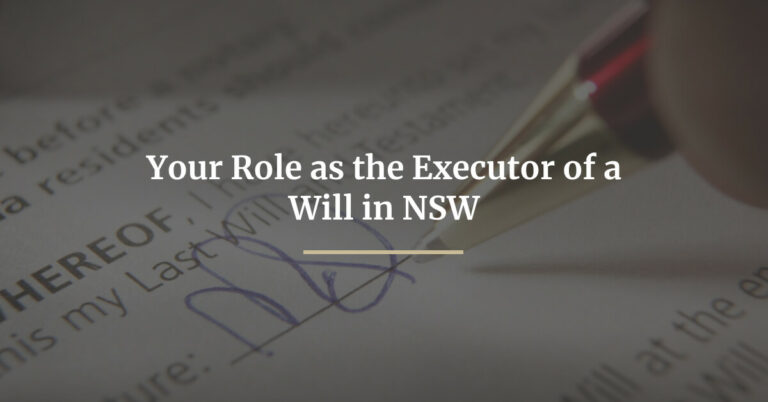
Your Role as the Executor of a Will in NSW
What Is Your Role as an Executor of a Will in NSW? An executor’s role is to carry out the wishes of the deceased by administering and distributing the estate in accordance with the terms of the deceased’s will. An executor obtains the power to administer an estate through a grant of probate. A grant
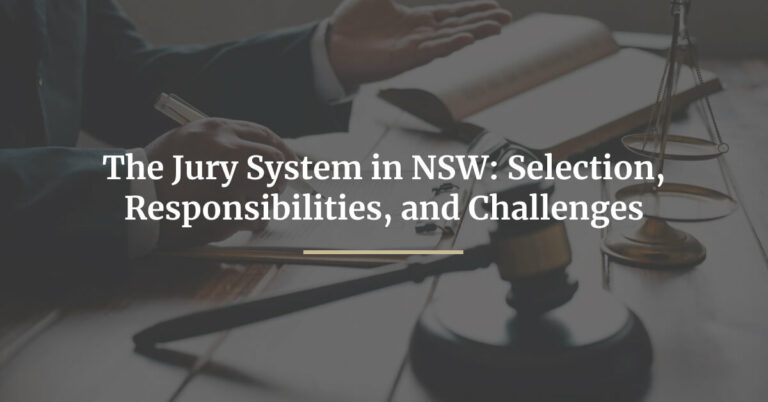
The Jury System in NSW: Selection, Responsibilities, and Challenges
Embarking on an exploration with Empower Wills & Estate Lawyers into the crux of the Jury System in New South Wales (NSW), we delve into a fundamental component of the justice system. From the selection of individuals designated to deliberate on pivotal decisions to the intricate responsibilities they uphold and confronting the challenges and criticisms
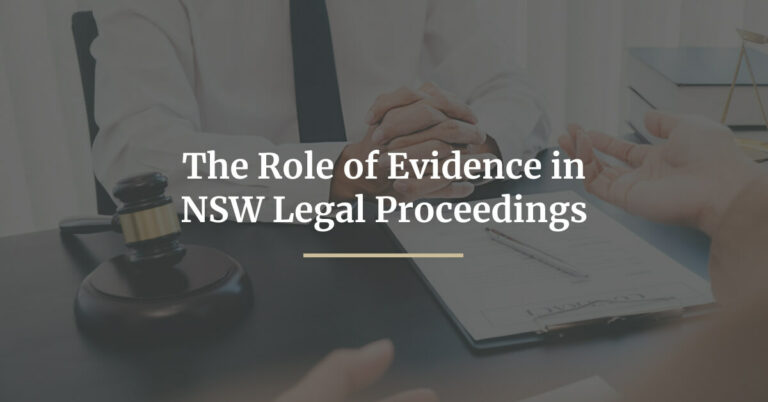
The Role of Evidence in NSW Legal Proceedings
Navigating through the legal pathways of New South Wales (NSW), one encounters the crucial impact evidence has in sculpting the outcomes of legal proceedings. The canvas upon which legal proceedings are painted is richly detailed with various forms of evidence, each meticulously scrutinised and presented to prove a case paving the way towards justice. This
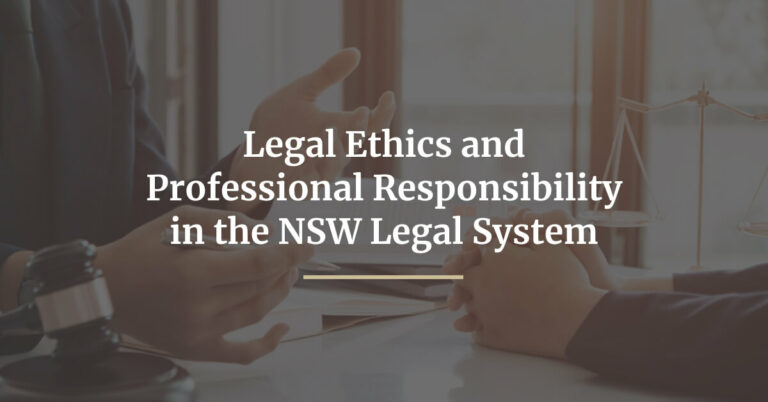
Legal Ethics and Professional Responsibility in the NSW Legal System
Legal ethics and professional responsibility stand as the cornerstones that uphold the integrity and credibility of the New South Wales (NSW) legal system. In this discussion brought to you by Empower Wills & Estate Lawyers, we embark on a succinct exploration of these fundamental concepts, peeling back layers to reveal the pivotal role of ethical
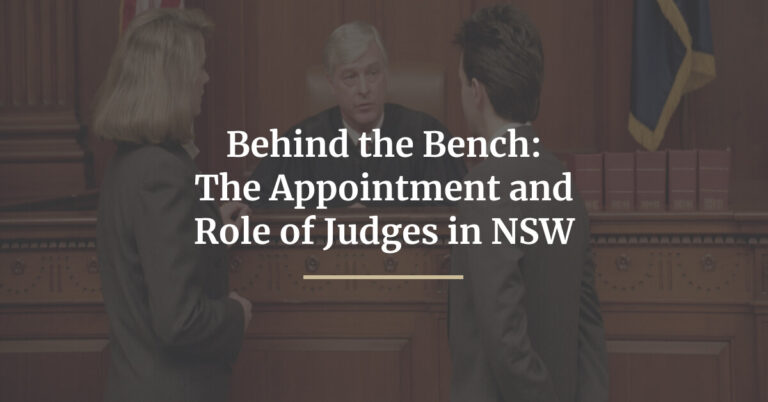
Behind the Bench: The Appointment and Role of Judges in NSW
In the complex tapestry of the legal system in New South Wales (NSW), judges play a pivotal role in maintaining order, interpreting law, and delivering justice. Understanding the structure of the judiciary and the nuanced process through which judges are appointed offers a lens into the foundational underpinnings of legal administration in NSW. This post
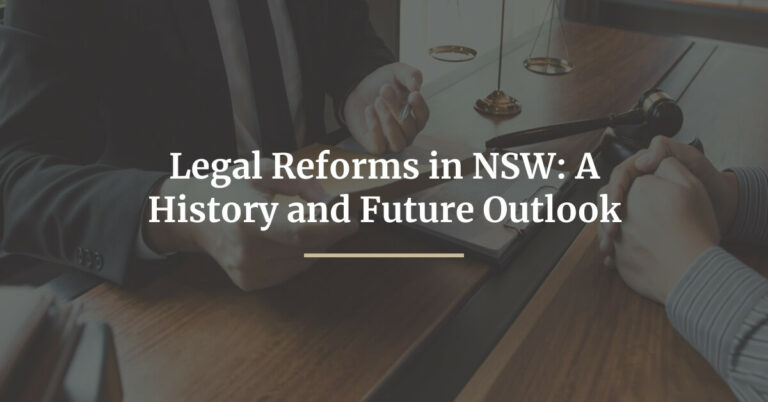
Legal Reforms in NSW: A History and Future Outlook
Embarking on a journey through the evolving legal landscape of New South Wales (NSW), Empower Wills & Estate Lawyers invites you to explore the compelling history and future outlook of legal reforms in the state. From historical shifts to future anticipations, we delve into how the NSW legal system has adeptly navigated the balance between

How Often Should I Update My Will and Estate Plan
Why Would I Need To Update My Will and Estate Plan? It is important to update your will and estate planning documents regularly to best ensure they are legally valid and up-to-date. Having a will is the best way to ensure you have a say on who benefits from your estate after your death. Where
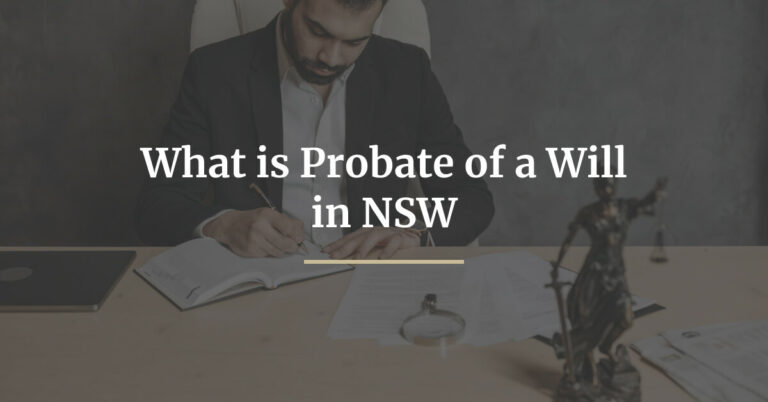
What is Probate of a Will in NSW
What Is Probate in NSW? Probate is the process involving the administration and distribution of a deceased estate. One of the first steps in the probate process is to apply for and obtain a Grant of Probate, which is a court order confirming the validity of the deceased’s will and which gives the executor authority
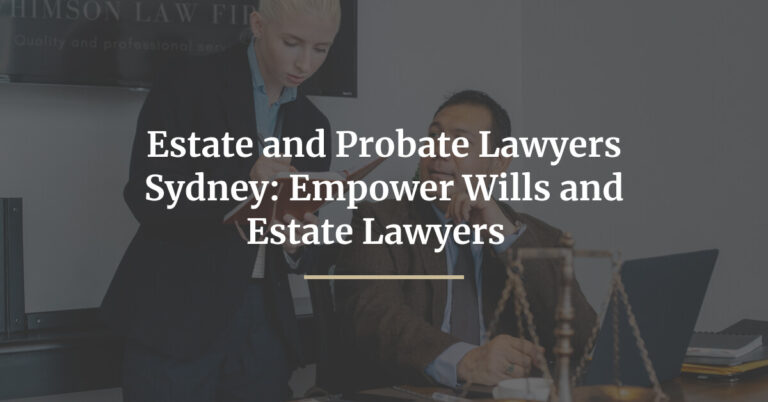
Estate and Probate Lawyers Sydney: Empower Wills and Estate Lawyers
Probate & Administration in NSW In New South Wales, when a person dies, the executor, administrator or legal personal representative of the deceased estate is usually required to apply for Probate or Letters of Administration and comply with the applicable succession and estate laws before distributing the estate to the beneficiaries. Each State and Territory
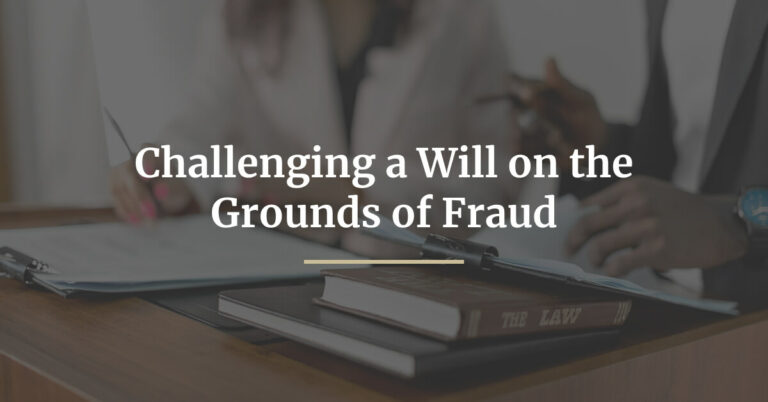
Challenging a Will on the Grounds of Fraud
When a will is challenged on the grounds of fraud, it’s because a claim has been made that the will is the product of false or misleading facts or circumstances that misled the will-maker (known as the ‘testator’). Fraud can come in many forms. The type of fraud will depend on the circumstances and is

Proving Undue Influence in Court
Identifying and proving undue influence in a will challenge can be difficult, as it usually occurs in private, and therefore, it is uncommon for disputes to proceed to a Court hearing on undue influence alone. However, when an undue influence dispute does proceed to Court, the Court must consider a range of evidence before deciding
